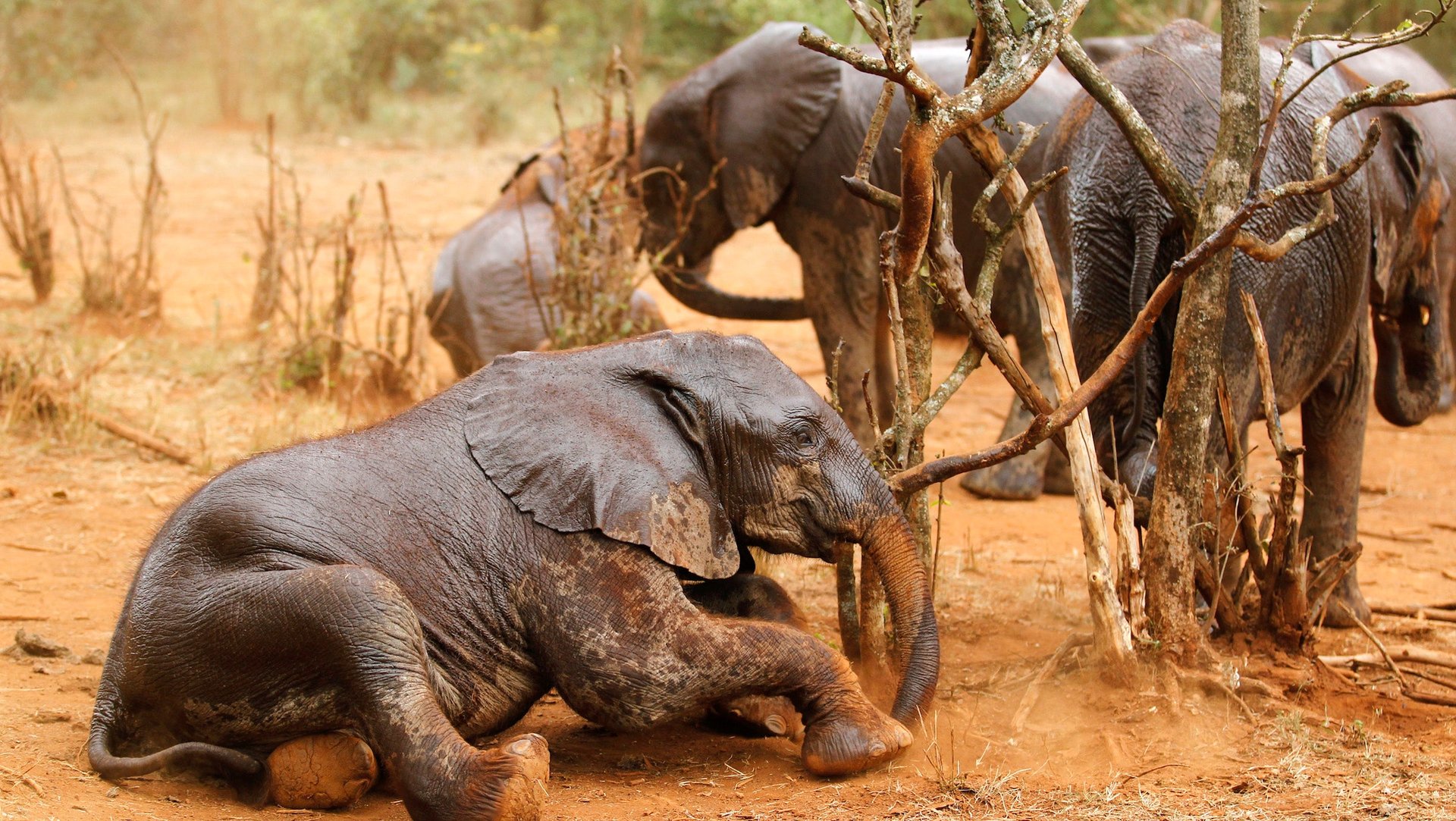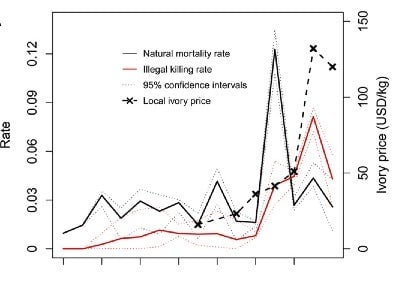More evidence that Chinese demand for ivory is destroying African elephant herds
Poaching across Africa is killing off elephants at an unsustainable rate, as Chinese demand for ivory rises, according to the the most comprehensive analysis of contemporary poaching rates to date.


Poaching across Africa is killing off elephants at an unsustainable rate, as Chinese demand for ivory rises, according to the the most comprehensive analysis of contemporary poaching rates to date.
It’s difficult to account for how many elephants die due to poachers, since the illegal killing of elephants is generally furtive. The researchers, led by George Wittemyer of Colorado State University, began by monitoring elephant carcasses at sites in Kenya’s Samburu National Reserve, to distinguish between natural deaths and poaching. From there, they modeled poaching across the continent based on their observed rates.
They found that kills by poachers from 2009 to 2012 were higher than in the previous decade of monitoring. About 20% of the herd in Sumburu was killed in that four-year period, according to the study, published in the Proceedings of the National Academy of Sciences. The killing rates correlated strongly with prices for ivory, and with seizures within Kenya of black-market ivory destined for China. During the peak year of ivory prices, 2011, about 40,000 elephants were killed—or 8 percent of the known population. This adds to previous reports that suggest poaching has reached an industrial scale.

The killing has a ripple effect on elephant herds. The elephants now have skewed sex ratios because of the poaching: not enough prime-age males are found in the herds, which creates breeding problems. A male’s tusks can weigh more than 250 pounds—and just one pound of ivory is worth $1,500 on the international market. The poaching also ends up orphaning young elephants, decreasing their odds of survival.
The Chinese market for ivory is driving the surge in poaching, the authors write. So curbing demand in China is the best way to stop the elephant deaths. That will be an uphill battle, because ivory is revered as a status symbol in China.